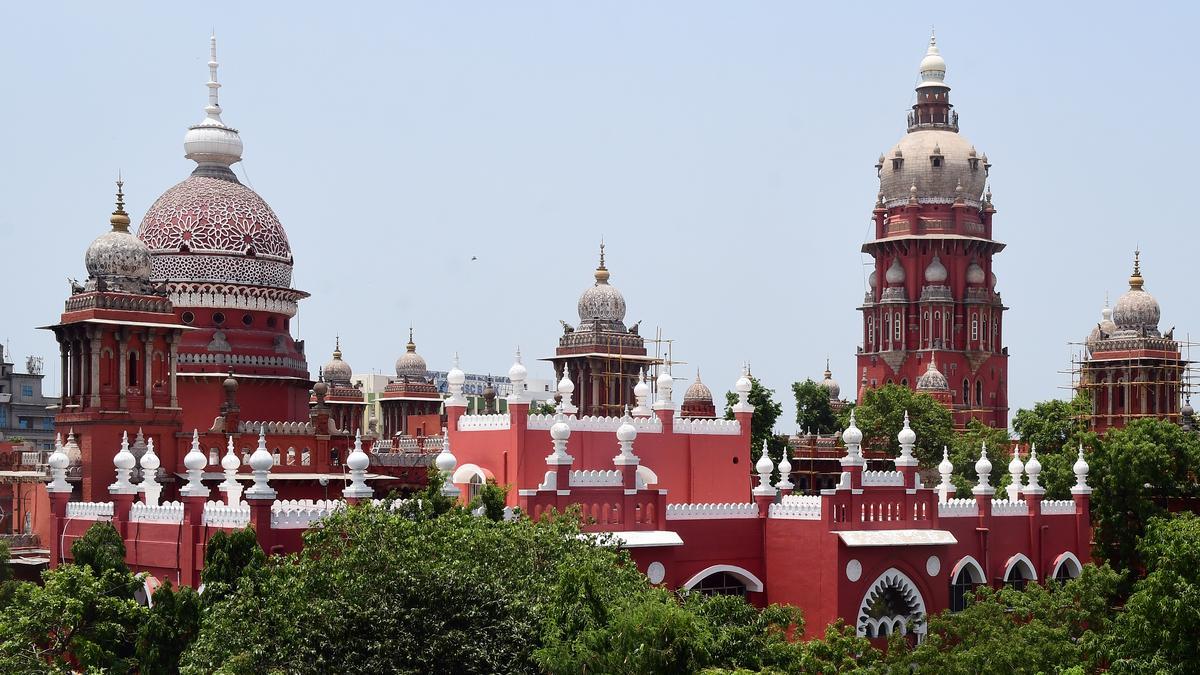
The observations were made while hearing a case where the petitioner had been denied the job of special educator on the ground that he possesses only a senior diploma and not a degree in special education. Photo: File
The Madras High Court has reminded the State government of its statutory obligation to make an endeavour that all educational institutions, either funded or recognised by it, provide inclusive education to children with disabilities, without any kind of discrimination.
Justice N. Anand Venkatesh said India was a signatory to the United Nations Convention on the Rights of Persons with Disabilities (UNCRPD) and therefore, Parliament enacted the Rights of Persons with Disabilities (RPWD) Act in 2016 with specific provisions related to education.
Section 16 of the RPWD Act makes it mandatory for the State to endeavour that all educational institutions admit children with disabilities without any discrimination and provide educational as well as extracurricular activities to them on a par with others through universally accessible infrastructure.
Further, Section 17 requires the government to conduct a quinquennial survey of school going children for the purpose of identifying the children with disabilities and ascertaining their special needs. It also insists on establishing adequate institutes to train teachers in sign language, braille and so on.
Section 34 of the Act makes it clear that every child with benchmark disability (assessed to be 40% or more) between the age of six to eighteen would have the right to free education either in a neighbourhood school or in a special school of her/his choice.
“It is therefore clear from the above that more sensitivity is required insofar as providing inclusive education to children suffering from disabilities is concerned and also to have sufficient teachers who are specially trained in the syllabus, to be recruited for this purpose,” the judge said.
He, however, lamented that many posts under the special category were lying vacant for a long period of time. “The statistics show that nearly 38% of the sanctioned posts have been lying vacant in nearly 22 Government Schools since March 2022,” Justice Venkatesh said.
“The unfilled vacancies have accumulated over a period of time. This has virtually defeated the very object of bringing the Act into force pursuant to the UN Convention. In view of the same, the Government of Tamil Nadu must initiate steps to ensure that appropriate qualification is prescribed, and the special teachers are appointed in all the Government Schools which are expected to provide inclusive education to children suffering from disability,” he wrote.
The observations were made while disposing of a writ petition filed by R. Kaliyappan, who was denied the job of special educator under the centrally sponsored Inclusive Education for Disabled at Secondary Stage (IEDSS) scheme on the ground that he possesses only a senior diploma and not a degree in special education.
The petitioner’s counsel N. Kavitha Rameshwar contended that it was unfair to insist on a degree in the 2023 recruitment notification, when many candidates with senior diplomas were appointed pursuant to a similar notification issued in 2019. She also said candidates with senior diplomas were being recruited as special educators in schools run by the Department for the Welfare of the Differently Abled.
Finding force in her submissions, the judge directed the Teachers Recruitment Board and the Director of School Education to consider the applications of senior diploma holders too since such qualification was permissible under the IEDSS guidelines as well as a 2010 notification issued by the National Council for Teacher Education.
Published – October 19, 2024 10:54 pm IST


